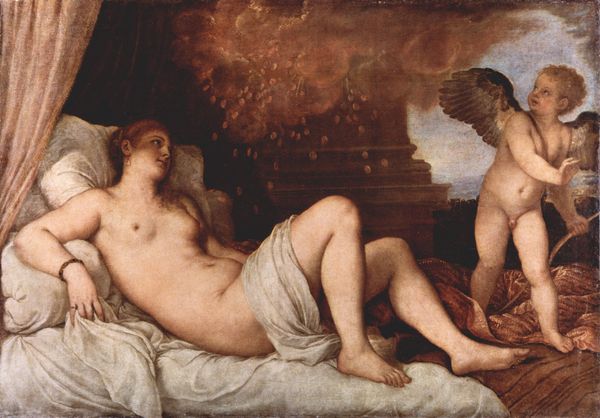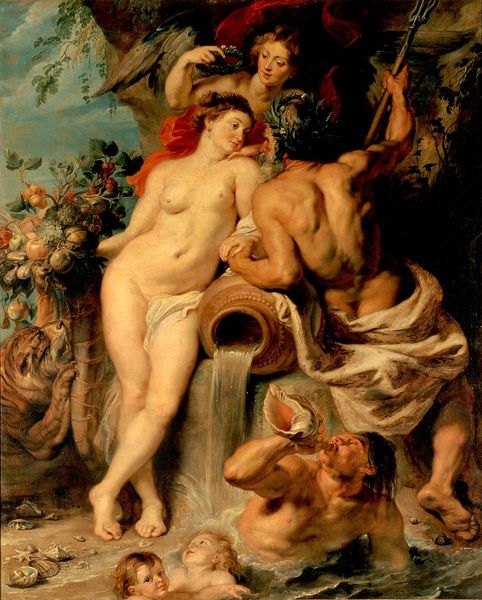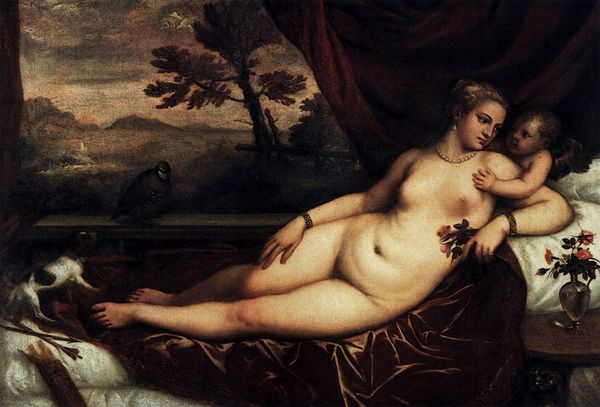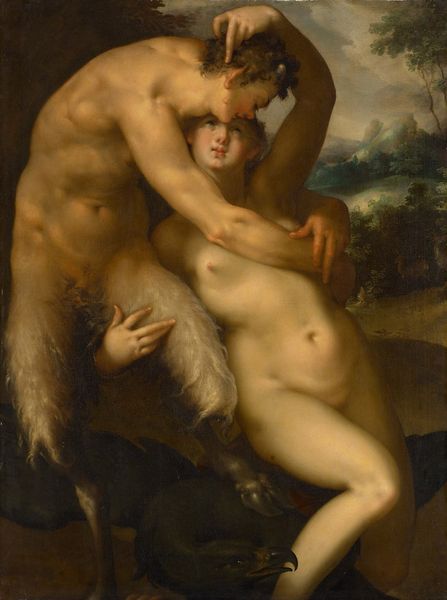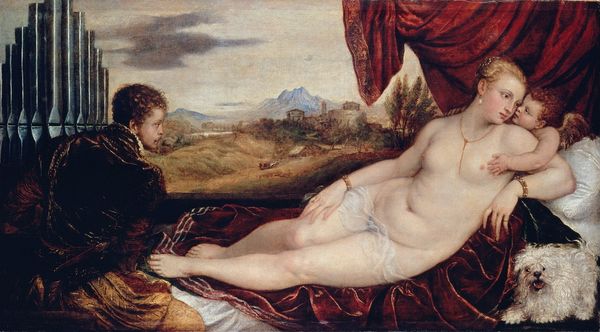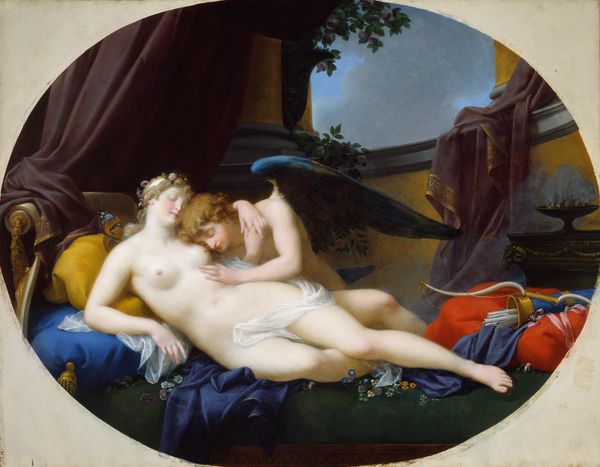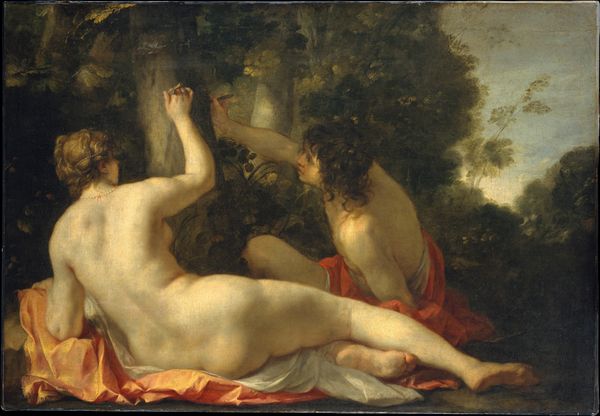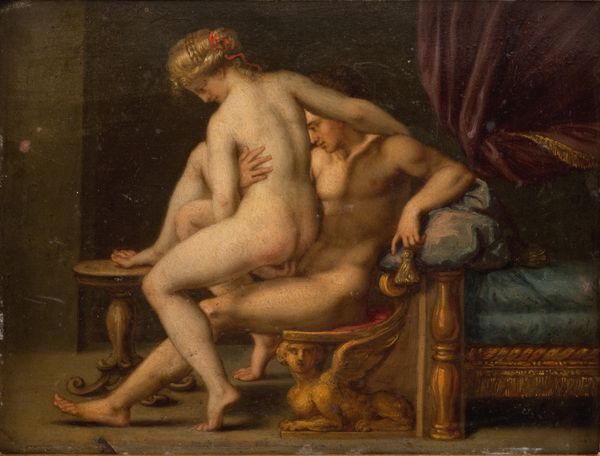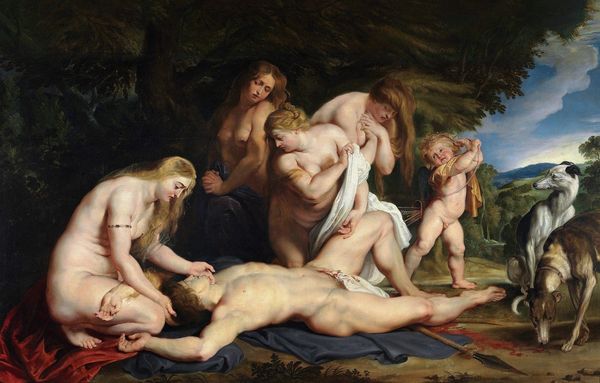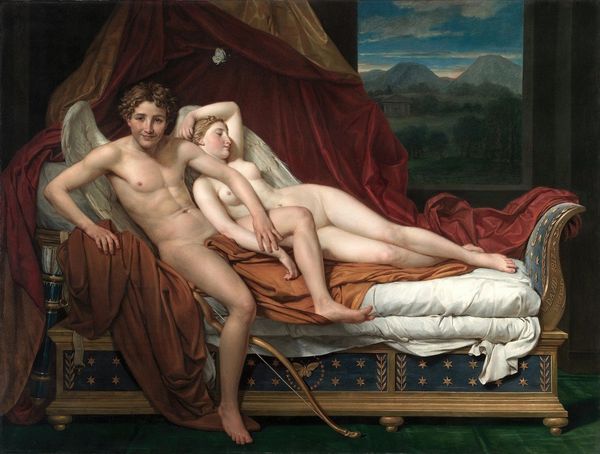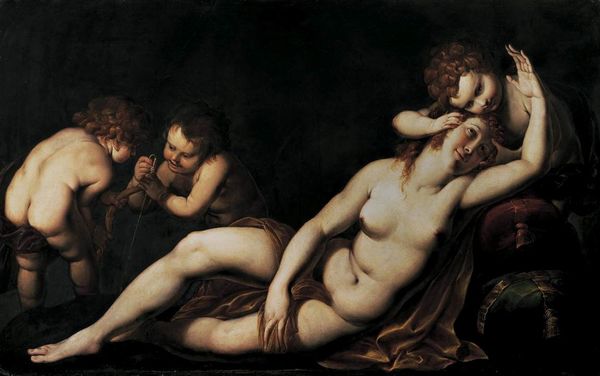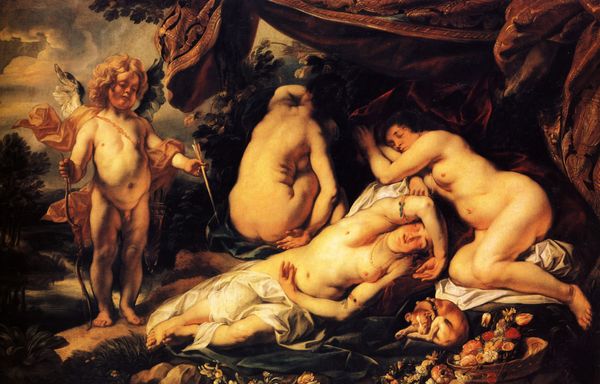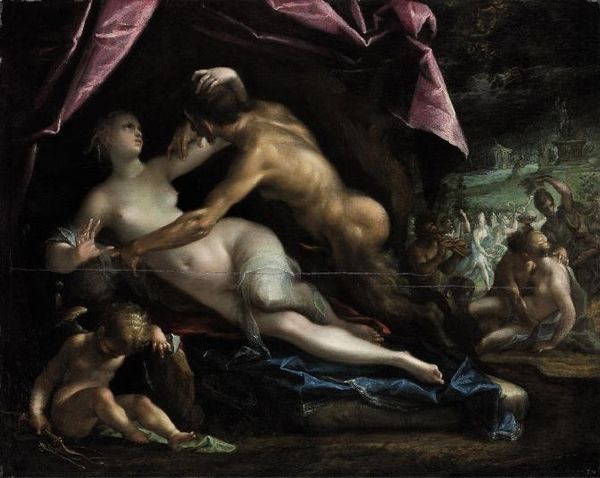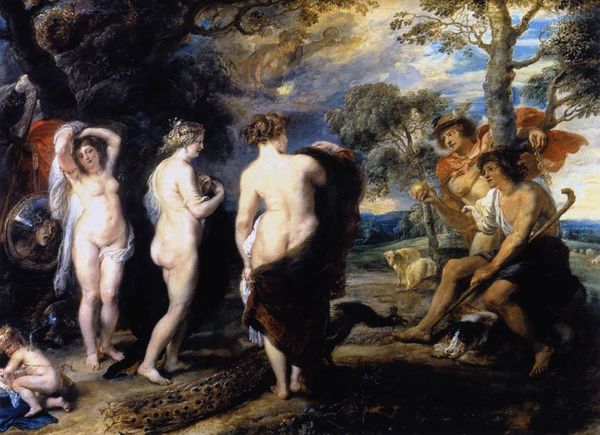
Jupiter and Callisto 1613
painting, oil-paint
#
allegory
#
baroque
#
painting
#
oil-paint
#
figuration
#
oil painting
#
mythology
#
human
#
history-painting
#
nude
Dimensions: 202 x 305 cm
Copyright: Public domain
Peter Paul Rubens painted “Jupiter and Callisto” in oil on canvas sometime in the 17th century. We see here the beautiful nymph, Callisto, embracing the goddess Diana, with Jupiter’s eagle lurking behind them. In this portrayal, the touch is a profound symbol, carrying echoes through time. Consider how, in antiquity, a similar gesture might signify trust and intimacy. Yet, with a slight alteration—a firmer grip, a different context—it could suggest betrayal or revelation. The emotional weight it bears engages us on a subconscious level. Think back to medieval depictions of the Annunciation, where the angel's touch signifies divine intervention. The power of such symbols lies in their cyclical progression. They resurface, evolve, and take on new meanings in different historical contexts. The image of the eagle can remind us of ancient Rome, yet here it lurks as a voyeur, evolving beyond simply being an imperial emblem.
Comments
No comments
Be the first to comment and join the conversation on the ultimate creative platform.
